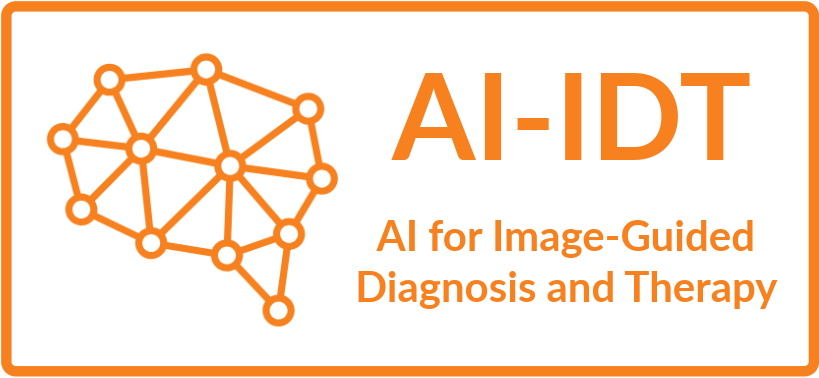
A fundamental challenge in modern medicine is the discrepancy between the increasing availability of complex, multimodal data and its limited application in daily clinical decision-making. This disconnect between data richness and clinical utilization represents a critical barrier to advancing precision medicine. Our AI for Image-Guided Diagnosis and Therapy lab aims to bridge this gap. We develop state-of-the-art Artificial Intelligence models that synthesize this complex information into actionable biomarkers, directly informing precision diagnostics and personalized therapeutic strategies.
To achieve this goal, we are focusing on three main research areas:
-
Learning efficient, (self)supervised representations (and embeddings) for medical (imaging) data
-
Developing predictive, in part bio-physically informed, models for disease assessment and individualized therapy
-
Designing algorithms and models that leverage the rich, synergistic information from multimodal medical data
Our lab is a joint appointment between TUM Radiation Oncology and TUM Neuroradiology. Together with our scientific and clinical partners at TUM and TUM University Hospital, we prioritize research on two key neurological diseases: Multiple Sclerosis and Brain Tumors.
Within the vibrant Munich AI ecosystem, our lab is part of the MCML, MDSI, and relAI.
Committed to open science, we strive to make all of our developed tools available publicly. We further contribute to the advancement of the field by actively participating in and co-organizing leading challenges like BraTS or ISLES and workshops such as the MICCAI BrainLesion workshop.
We are supported by the SFB-824, Deutsche Krebshilfe, TUM-KKF, ZD.B, BMBF, DFG and NIH.